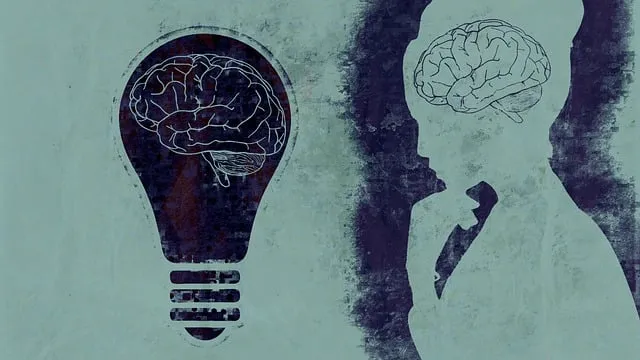Kaiser Permanente Mental Health Boulder leads the charge in revolutionizing trauma support services with an evidence-based approach that prioritizes understanding and addressing trauma's impact on daily life. They offer safe spaces for processing traumatic experiences, develop coping skills, reduce stigma, and empower individuals to regain control of their lives. Serving as a key component of Boulder's trauma response system, they provide emergency aid, interventions, long-term support, and prevention programs targeting depression reduction and burnout among first responders. Through Mental Wellness Coaching and empathy-building practices, Kaiser Permanente Mental Health strengthens community emotional well-being by creating supportive healthcare environments that encourage open dialogue about mental health challenges.
“Boulder, a vibrant community, has been significantly enhanced by the integral role of Kaiser Permanente Mental Health in trauma support services. This article delves into the profound impact of trauma and its implications for local residents. We explore how Kaiser Permanente’s expertise in mental health plays a pivotal role in navigating Boulder’s trauma response. Furthermore, it highlights effective strategies and best practices for implementing trauma-informed care, offering valuable insights for community improvement.”
- Understanding Trauma and Its Impact: A Foundation for Support Services
- The Role of Kaiser Permanente Mental Health in Boulder's Trauma Response
- Implementing Effective Trauma-Informed Care: Strategies and Best Practices
Understanding Trauma and Its Impact: A Foundation for Support Services

Trauma is a profound and complex experience that can have lasting effects on an individual’s mental and emotional well-being. It stems from various sources, such as violent or life-threatening events, accidents, natural disasters, or even chronic stress in certain environments. At Kaiser Permanente Mental Health Boulder, we recognize that trauma impacts not just the mind but also shapes one’s ability to cope with daily life, often leading to conditions like anxiety, depression, and post-traumatic stress disorder (PTSD).
Understanding trauma is a crucial foundation for providing effective support services. Our approach focuses on creating safe spaces where individuals can begin to process their experiences. Through evidence-based practices, we facilitate the development of coping skills, promote healing from mental illness stigma reduction efforts, and empower people to reclaim their lives. By addressing trauma at its core, Kaiser Permanente Mental Health Boulder aims to revolutionize support services, ensuring that every individual receives the care they need to navigate life’s challenges with resilience and strength.
The Role of Kaiser Permanente Mental Health in Boulder's Trauma Response

Kaiser Permanente Mental Health plays a pivotal role in Boulder’s trauma response ecosystem. With its deep roots in the community, the organization offers comprehensive services tailored to address various mental health needs, especially in times of crisis. They provide emergency psychological first aid, critical interventions, and long-term support for individuals affected by traumatic events. Their expertise extends beyond acute care; they also focus on prevention strategies like depression prevention programs and mental illness stigma reduction efforts, aiming to build resilience within the community.
In addition, Kaiser Permanente Mental Health contributes to burnout prevention initiatives crucial for first responders and healthcare workers frequently exposed to high-stress situations. By offering specialized services, education, and resources, they help individuals manage stress, promote emotional well-being, and foster a supportive environment that encourages open conversations about mental health challenges.
Implementing Effective Trauma-Informed Care: Strategies and Best Practices

Implementing effective trauma-informed care requires a multifaceted approach that aligns with the principles and practices recommended by organizations like Kaiser Permanente mental health Boulder. This model prioritizes understanding and addressing traumatic experiences to enhance the delivery of quality care. One key strategy involves integrating Mental Wellness Coaching Programs Development, which equips healthcare providers with the skills needed to create safe, supportive environments for their clients. By fostering open communication and encouraging self-reflection, these programs facilitate emotional healing processes, enabling individuals to process and manage trauma-related symptoms effectively.
Additionally, building empathy within healthcare settings is a best practice that significantly contributes to successful trauma care. Empathy Building Strategies focus on cultivating a deep understanding of the client’s experiences and perspectives. This involves active listening, validating emotions, and demonstrating compassion. Such approaches create a sense of trust and security, encouraging individuals to share their stories and engage in therapeutic processes, ultimately enhancing overall mental wellness.
In conclusion, trauma support services are vital for communities like Boulder, where Kaiser Permanente mental health plays a pivotal role in responding to traumatic events. By understanding the far-reaching impact of trauma and implementing trauma-informed care strategies, we can enhance the effectiveness of support systems. The best practices outlined in this article serve as a guide for improving access to care, ensuring that individuals impacted by trauma receive the compassionate and competent services they deserve.






